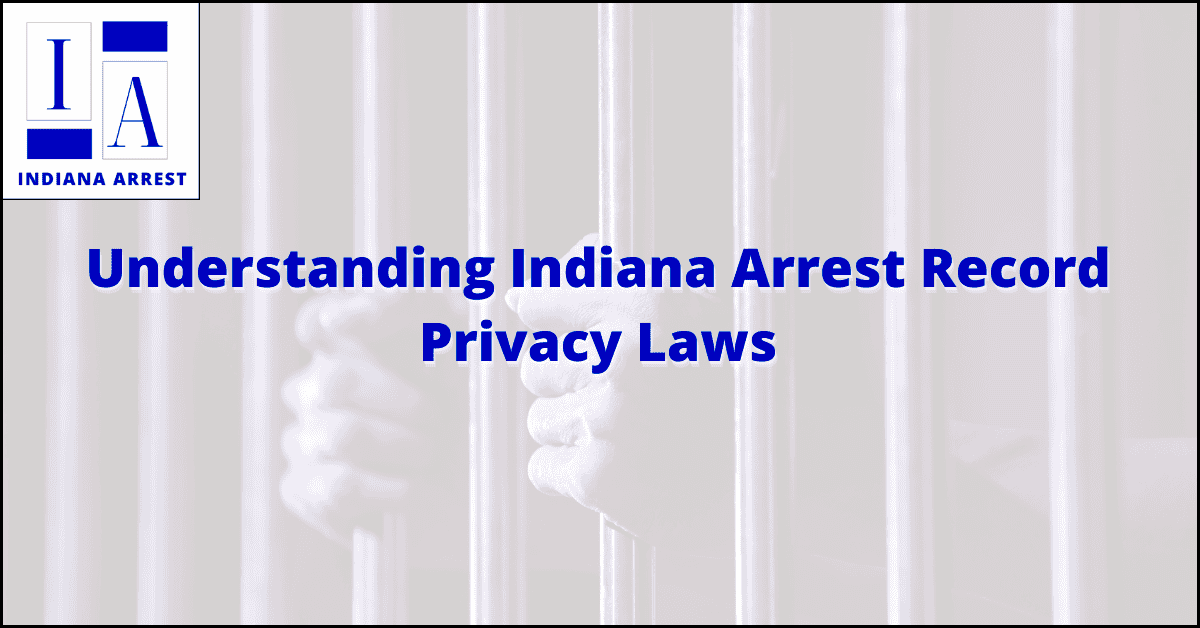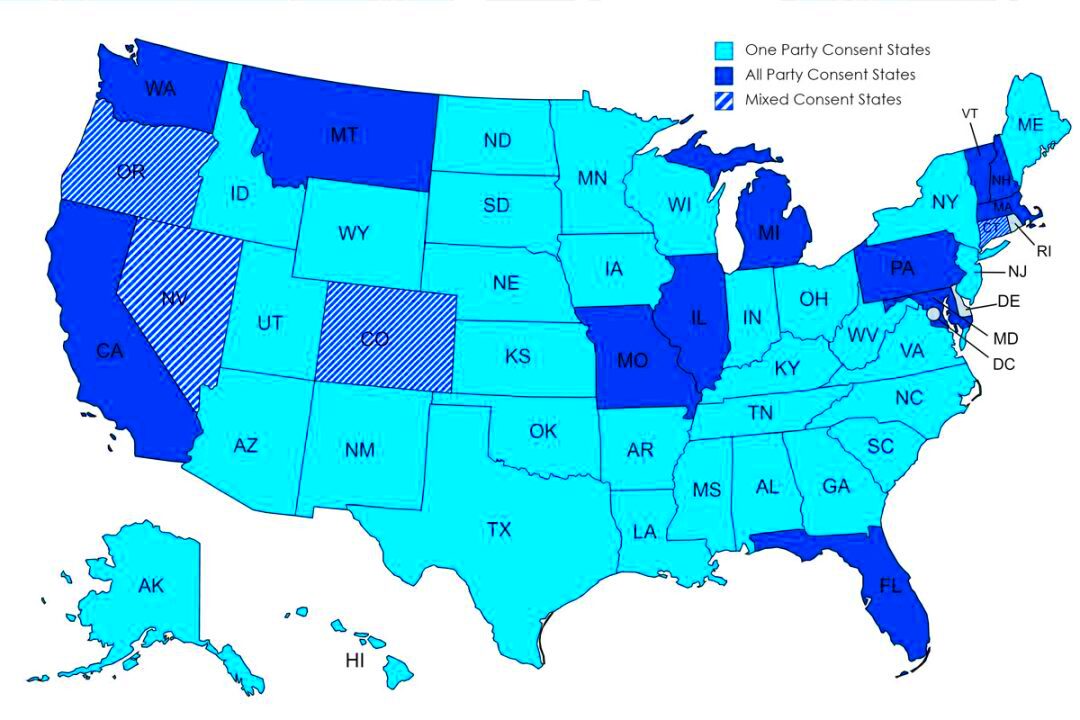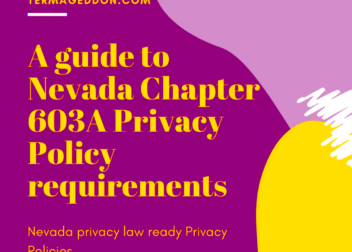Understanding Indiana Recording Laws: A Legal Guide
Understanding Indiana’s recording laws is essential for anyone involved in conversations that may be recorded. Whether you’re a business owner, a journalist, or just a concerned citizen, knowing what you can and cannot do when it comes to recording conversations can protect you legally. Indiana has specific laws that govern both audio and video recordings, and being aware of these rules is crucial to avoid any legal issues.
Types of Recording in Indiana

In Indiana, recordings can be categorized mainly into two types: audio recordings and video recordings. Here’s a closer look at each type:
- Audio Recordings: These involve capturing sound, typically conversations. Audio recordings can be done with devices such as smartphones, voice recorders, or any other recording equipment.
- Video Recordings: These capture visual images along with sound. Video recordings can be made using cameras, smartphones, or any video recording devices.
Understanding the type of recording you are making is crucial, as the consent requirements may vary based on the type of recording involved.
One-Party Consent and Two-Party Consent Explained

Indiana follows a one-party consent law, which means that only one person involved in the conversation needs to consent to the recording. Here’s what this means for you:
- If you are part of a conversation, you can record it without informing the other parties.
- However, if you are not part of the conversation, you must have the consent of at least one party to record.
In contrast, two-party consent laws require that all parties involved in the conversation give their permission before recording. Indiana does not have this requirement, which makes it easier for individuals to record conversations where they are participants.
Understanding these consent laws can help you navigate legal boundaries effectively and ensure that your recordings are lawful.
Exceptions to the Recording Laws

While Indiana generally follows a one-party consent law for recording conversations, there are important exceptions to be aware of. These exceptions can affect the legality of your recordings. Let’s explore some of these exceptions:
- Emergency Situations: If you are in an emergency situation, such as a crime in progress, you may record without consent. However, you should have a valid reason for doing so.
- Public Places: Recording in public spaces where individuals have no reasonable expectation of privacy is generally permissible. This could include parks, streets, or public events.
- Law Enforcement: Law enforcement officials may have different rules regarding recording. If you’re interacting with law enforcement, be cautious, as they may have specific policies that affect your rights.
- Business Context: In business settings, some regulations may apply. For example, customer service calls may have different requirements based on company policy or industry regulations.
Being aware of these exceptions helps ensure you stay within the law while recording conversations in various scenarios.
Penalties for Violating Recording Laws
Violating Indiana’s recording laws can lead to serious consequences. It’s essential to understand what penalties you might face if you do not adhere to these regulations:
- Civil Penalties: Individuals who violate recording laws may face lawsuits from affected parties. This can result in significant financial damages.
- Criminal Charges: Depending on the severity of the violation, you may face criminal charges. In Indiana, unauthorized recording can be classified as a Class C misdemeanor, leading to fines and possible jail time.
- Loss of Credibility: In professional settings, violating recording laws can damage your reputation and lead to disciplinary action, including termination from your job.
To avoid these penalties, it’s crucial to fully understand and follow Indiana’s recording laws.
Best Practices for Complying with Indiana Recording Laws
To ensure you stay on the right side of the law when recording conversations in Indiana, consider these best practices:
- Know the Law: Familiarize yourself with Indiana’s recording laws, including the one-party consent rule and any exceptions.
- Obtain Consent: If possible, always inform the other party that you are recording the conversation. Even if it’s not legally required, it’s a good practice.
- Use Proper Equipment: Ensure that your recording device is reliable and functioning correctly to avoid any legal issues related to poor quality recordings.
- Document Conversations: If you are recording for business purposes, keep a record of the conversation’s context and any consent obtained.
- Stay Professional: In a business environment, adhere to company policies regarding recordings to avoid potential conflicts.
By following these best practices, you can navigate Indiana’s recording laws confidently and minimize the risk of legal issues.
Impact of Recording Laws on Businesses
Recording laws can significantly impact how businesses operate, especially in terms of communication and privacy. Understanding these laws is crucial for any business to avoid legal pitfalls. Here’s how recording laws can affect businesses:
- Customer Interactions: Businesses often record customer service calls for quality assurance. Knowing the one-party consent law allows companies to record conversations without notifying customers. However, informing customers about the recording can enhance trust.
- Employee Monitoring: Some businesses choose to record meetings or calls for training purposes. It’s important to establish a clear policy and inform employees about recording practices to maintain transparency.
- Legal Compliance: Companies must ensure that their recording practices comply with state and federal laws to avoid lawsuits or penalties. Consulting legal experts can help businesses navigate these regulations.
- Data Security: Recorded conversations can contain sensitive information. Businesses need to implement proper security measures to protect this data and comply with privacy laws.
Overall, understanding and adhering to recording laws helps businesses operate smoothly while maintaining customer trust and protecting their interests.
Common Misconceptions About Recording Laws
There are several misconceptions surrounding recording laws that can lead to confusion and potential legal issues. Let’s clear up some of the most common myths:
- All Parties Must Consent: Many people believe that all parties need to consent to a recording. In Indiana, only one party’s consent is required if they are involved in the conversation.
- Recording is Illegal Everywhere: Some think that recording conversations is illegal in all situations. While there are restrictions, recording is legal in many contexts, especially when one party consents.
- Business Calls Don’t Need Consent: Some believe businesses can record calls without any guidelines. While one-party consent applies, it’s still good practice to inform customers about recordings.
- Voicemail Can Be Recorded Freely: Recording voicemails without consent is not permitted. If you want to record, it’s best to notify the person leaving the message.
Being aware of these misconceptions can help individuals and businesses navigate recording laws effectively and avoid potential pitfalls.
FAQs About Indiana Recording Laws
Here are some frequently asked questions regarding Indiana recording laws that can help clarify common doubts:
- Can I record a conversation without notifying the other party?
Yes, in Indiana, if you are a participant in the conversation, you can record it without informing the other party. - What if I’m not part of the conversation?
If you are not part of the conversation, you must obtain consent from at least one participant to record it legally. - Are there penalties for violating recording laws?
Yes, violating Indiana’s recording laws can lead to civil penalties, criminal charges, and damage to your professional reputation. - What are the exceptions to the recording laws?
Exceptions include emergency situations, public places, and specific business contexts where regulations may differ. - Should I inform customers that I’m recording their calls?
While it’s not legally required, informing customers can help build trust and demonstrate transparency.
These FAQs aim to provide a clearer understanding of Indiana’s recording laws and help you navigate them more confidently.
Conclusion on Understanding Indiana Recording Laws
In conclusion, understanding Indiana recording laws is essential for individuals and businesses alike. Knowing the difference between one-party and two-party consent, as well as the exceptions to the laws, can help you navigate legal boundaries effectively. Being aware of the potential penalties for violations ensures that you operate within the law and maintain your credibility. Adopting best practices for recording conversations not only protects you legally but also fosters trust with those you interact with. Whether you’re recording for business, personal reasons, or media purposes, a clear understanding of these laws will serve you well.


